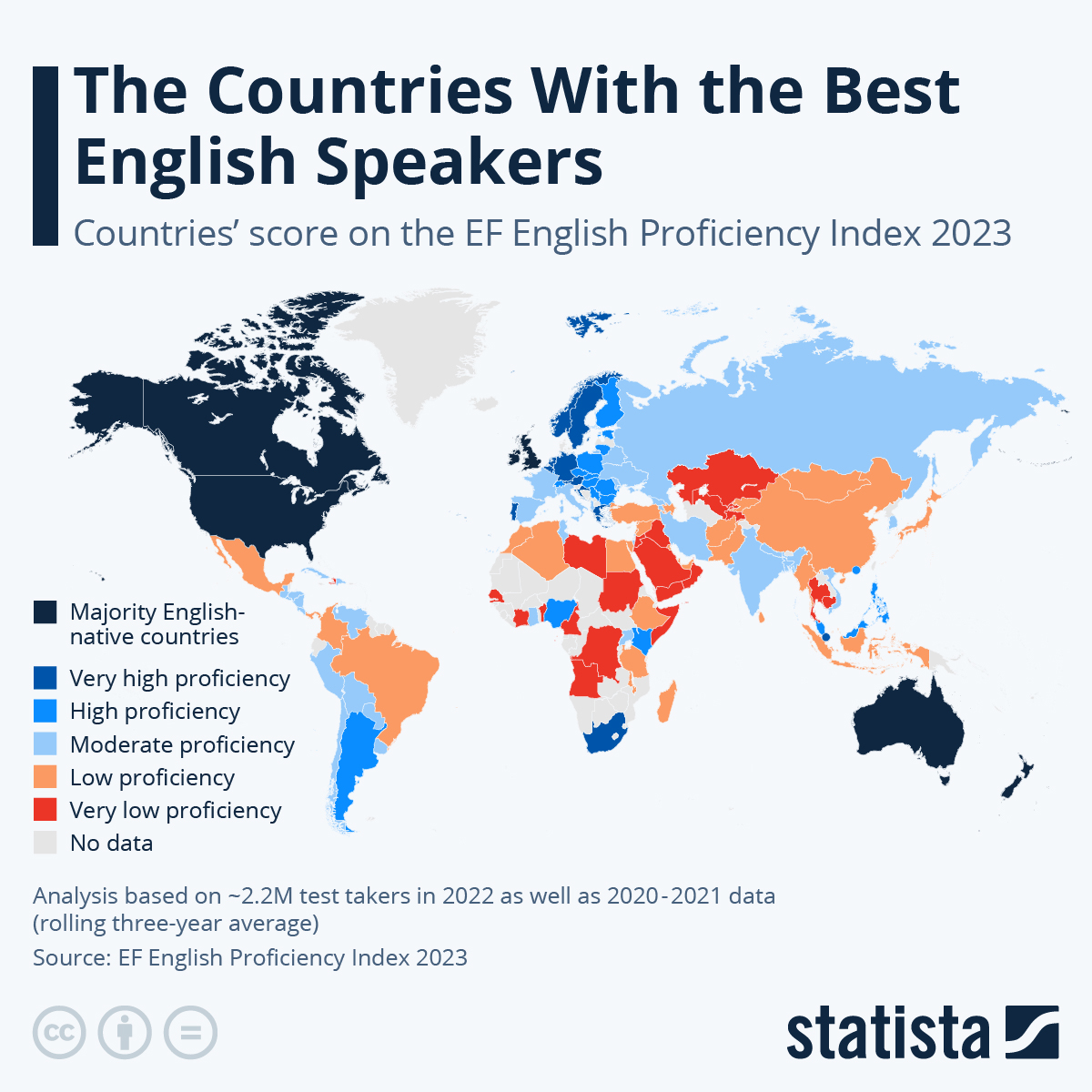English proficiency is an increasingly important factor for job seekers, company success and tourism revenues all over the world. EF's English Proficiency Index shows how well people all over the world speak English - in general ranging from highly proficient speakers in culturally close and highly developed European nations to much lower skill levels in little-developed countries, often those in which education and daily life is centered around a different European language altogether.
But the results also reveal some surprising results, including one big tourism player not well-versed in the international lingua franca, a highly proficient Asian nation and another from the continent that is a global power, but might not always walk the talk.
Western and Northern European nations won out the category of very high proficiency last year, with the Netherlands in the lead. The second-highest scoring country was Singapore - at 631 out of 800 points far ahead of the Philippines (578), Malaysia (568) and Hong Kong (558). The city state profits from its highly urban population, international immigrants and business prowess.
Relatively low proficiency in English could be seen in China at 464 out of 800 points. Despite haven risen to global economic and cultural prominence, the once-closed-off country continues to look within - aided by censorship keeping public discourse domestic - while also supporting a relatively large rural population. The English language situation is more dire in Thailand, however. Despite a large number of tourists swarming the country, very low proficiency was measures in 2022 at 416 out of 800 points.





















